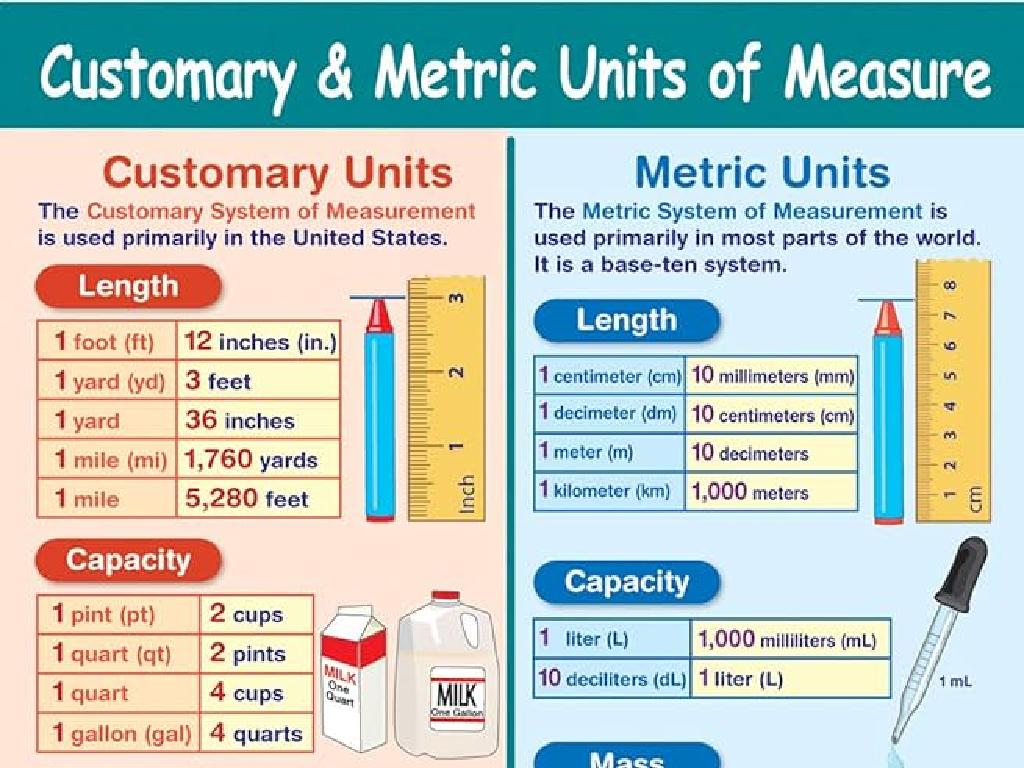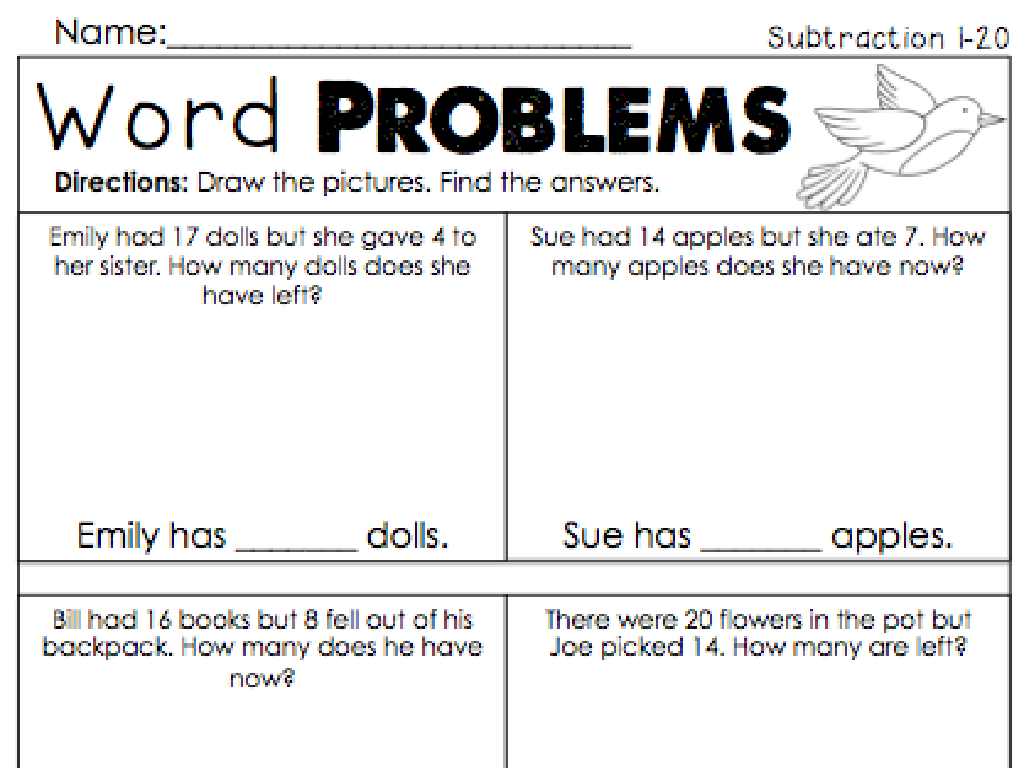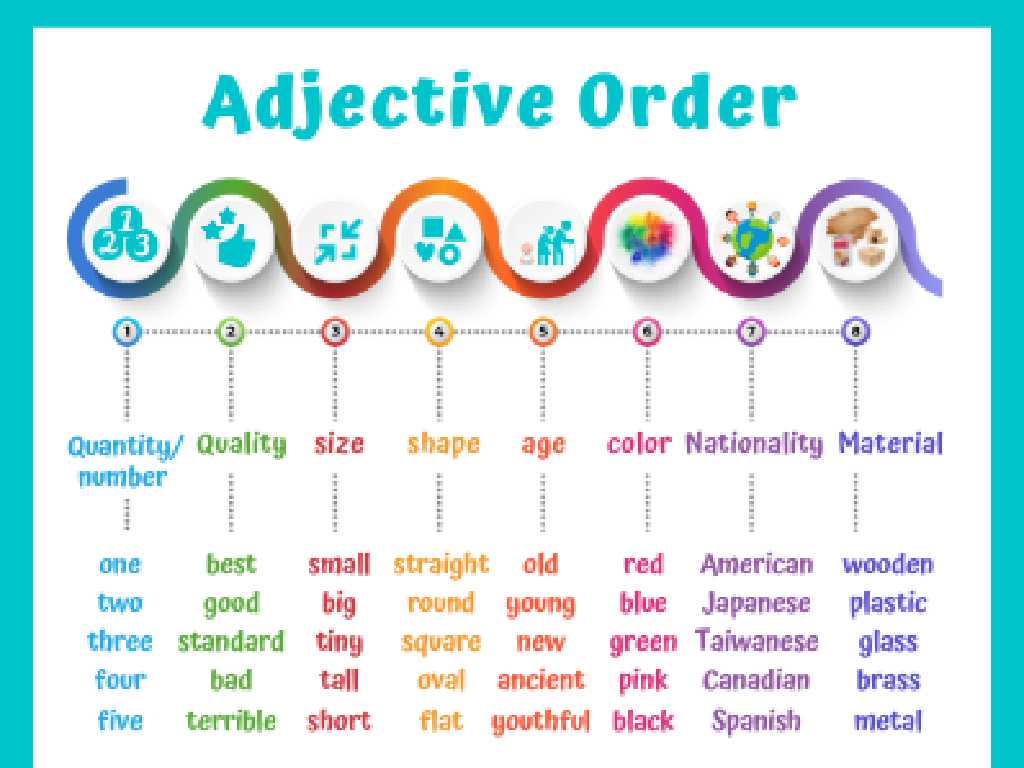Comparing Athens And Sparta: Part Ii
Subject: Social studies
Grade: Sixth grade
Topic: Greece
Please LOG IN to download the presentation. Access is available to registered users only.
View More Content
Athens vs. Sparta: Governments, Economies, and Societies
– Recap: Athens and Sparta basics
– Quick review of previous lesson on Athens’ democracy and Sparta’s military oligarchy
– Compare their different governments
– Athens had a democratic system, while Sparta was ruled by a few
– Examine their unique economies
– Athens’ economy was based on trade, Sparta’s on farming and conquest
– Explore societal structure and roles
– Athens valued education and arts, Sparta valued military strength and discipline
|
Begin with a brief recap of the previous class, highlighting the foundational aspects of Athens and Sparta. Move on to a detailed comparison of their governments, pointing out Athens’ early form of democracy and Sparta’s strict oligarchy. Discuss the economic differences, with Athens’ thriving trade and Sparta’s reliance on agriculture and control over helots. Explore the societal norms, including the Athenian focus on education and culture versus the Spartan emphasis on military training and discipline. The objective is for students to grasp the complexities of these two city-states and how their structures influenced their legacies in history.
Government Structures: Athens vs. Sparta
– Athens: Democracy origins
– Citizens’ assemblies and voting in Athens
– Sparta: Oligarchic governance
– Sparta ruled by a small group of leaders
– Decision-making: Athens vs. Sparta
– Athens involved citizens in law-making, Sparta’s power with few elites
– Impacts on citizens and society
– Democracy fostered participation, while oligarchy limited it
|
This slide aims to compare and contrast the governmental structures of Athens and Sparta, highlighting the birth of democracy in Athens where citizens could participate in assemblies and vote on laws. In contrast, Sparta was governed by an oligarchy, where a small group of leaders made decisions. Discuss the differences in decision-making processes between the two city-states, emphasizing how these differences affected the lives of their citizens and the overall society. Encourage students to think about the pros and cons of each system and how they might feel living under each government. This will help them understand the historical context and its relevance to modern political systems.
Economic Contrasts: Athens vs. Sparta
– Athens: Emphasis on trade
– Used silver coins for trade, which allowed for a diverse market.
– Sparta: Relied on land and barter
– Focused on agriculture and used bartering instead of currency.
– Economic impact on daily life
– How did trade or bartering affect jobs and social structure?
– Comparing Athenian and Spartan economies
|
This slide explores the stark differences between the economies of Athens and Sparta. Athens had a robust trade system, facilitated by their use of silver coins, which led to a diverse market and a variety of available goods. Sparta’s economy was primarily land-based, focusing on agriculture and using a bartering system, which influenced their more rigid social structure. Discuss how these economic systems impacted the daily lives of citizens, including their jobs, social status, and interactions with other city-states. Encourage students to think about how the availability of goods, or lack thereof, could affect their own daily lives to draw parallels to the historical content.
Social Structures in Athens and Sparta
– Society roles: Citizens vs. Others
– Citizens had rights, while women and slaves had different roles and statuses.
– Education vs. Military focus
– Athens valued education, Sparta emphasized military training from a young age.
– Religious and cultural life
– Both city-states were polytheistic but had unique gods and practices.
– Comparing daily experiences
|
This slide aims to compare the social structures and daily life of Athens and Sparta. Highlight the differences in societal roles, with citizens typically having more rights and privileges compared to women and slaves. Discuss the contrasting educational priorities, where Athenian education was broad, including philosophy and arts, while Spartan education was focused on discipline and combat training. Explain the religious practices, noting that while both city-states were polytheistic, they had distinct religious festivals and patron deities. Encourage students to think about how these differences in social structure and daily life could influence the overall culture and values of Athens and Sparta.
Athens vs. Sparta: A Tale of Two City-States
– Similarities of Athens and Sparta
– Both valued education, had slaves, and believed in multiple gods
– Key differences and legacies
– Athens was democratic, Sparta was militaristic
– Influence of differences on history
– Athens’ arts vs. Sparta’s army shaped their historical paths
– Reflect on their unique cultures
|
This slide aims to compare and contrast Athens and Sparta, highlighting both their similarities and the stark differences that have left lasting legacies. Students should understand that despite both being prominent Greek city-states that valued education and shared cultural aspects like polytheism and slavery, their core values diverged significantly. Athens was known for its democratic governance and focus on arts and philosophy, while Sparta was renowned for its military prowess and strict social structure. These differences greatly influenced their historical trajectories, with Athens becoming a symbol of culture and democracy, and Sparta being remembered for its military discipline and influence. Encourage students to think about how the unique characteristics of each city-state contributed to their successes and challenges.
Class Debate: Athens vs. Sparta
– Divide into Athenians and Spartans
– Prepare your arguments
– Consider government, society, culture, military
– Present and debate
– Decide which system was better
|
This class activity is designed to engage students in a debate to compare the systems of Athens and Sparta. Divide the class into two groups, with one representing Athenians and the other Spartans. Each group will prepare arguments defending their assigned city-state’s system, considering aspects such as government, society, culture, and military. Encourage students to use facts learned from previous lessons. During the debate, each side will present their arguments, and afterwards, the class can discuss and decide which city-state they believe had the better system. For the teacher: prepare a list of key points for each city-state to ensure a balanced debate, and guide the discussion to help students understand the strengths and weaknesses of each system.
Reflections: Athens and Sparta in Today’s World
– Lessons from Athenian and Spartan life
– Democracy, education, and military focus
– Comparing ancient values to ours
– Freedom, equality, and societal roles
– Discuss Greece’s influence on today
– Democracy, architecture, and the Olympics
– Share thoughts on ancient vs modern
|
This slide aims to engage students in a reflective discussion on the ancient civilizations of Athens and Sparta. Students should consider what modern society has learned from these cultures, such as the Athenian birth of democracy and the Spartan military discipline. Encourage them to compare and contrast these ancient values and systems with those of our own society. Facilitate a conversation on how ancient Greek philosophies and achievements continue to influence contemporary life, including government, sports, and the arts. This discussion will help students appreciate the lasting impact of ancient civilizations and promote critical thinking about the evolution of societal values and structures.
Homework: Athenian or Spartan Life
– Write a one-page essay
– Choose Athenian or Spartan life
– Reflect on today’s lesson about Athens and Sparta
– Include three reasons for choice
– Consider culture, government, and daily life
– Submit by next class session
|
This homework assignment encourages students to apply their knowledge from the lesson on Athens and Sparta by writing a creative essay. They should imagine living in ancient Greece and decide whether they would prefer the Athenian way of life, with its focus on democracy and culture, or the Spartan lifestyle, known for its military discipline and simplicity. Students must provide three reasons for their choice, drawing on the social, political, and cultural aspects discussed in class. This exercise will help them understand the differences between the two city-states and reflect on their values. The essay will also develop their writing skills and ability to express opinions with supporting arguments. Provide examples of reasons they might choose, such as the Athenian emphasis on education or the Spartan focus on strength and discipline.






